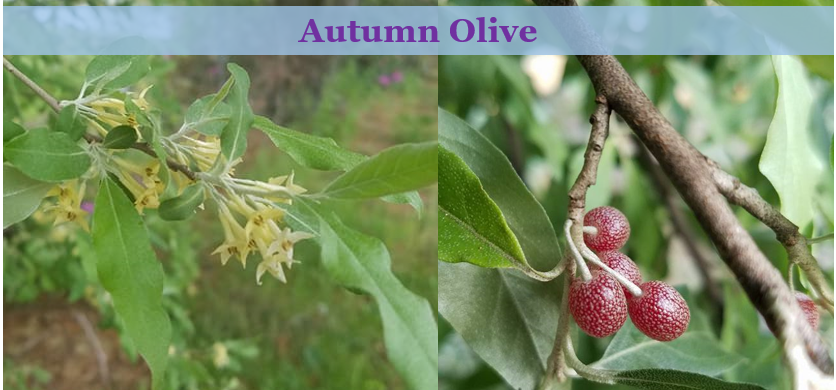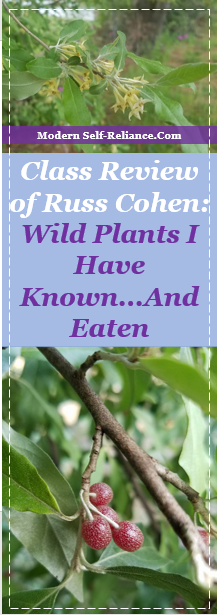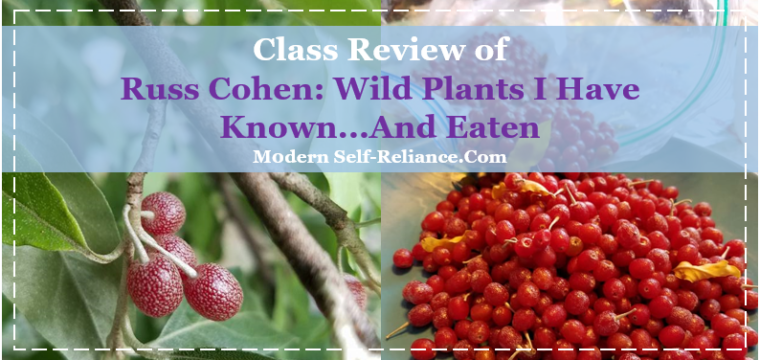We may earn a small commission from any link to any products or services from this website. Your purchase helps support our work in bringing you real information about homesteading skills and preparedness.
On March 2, 2017 the Burlington Public Library invited Russ Cohen to give a presentation on foraging for edible plants as part of their survival month. This free event happening right down the street was just was I was looking for.
Wild Plants I Have Known...and Eaten
by Russ Cohen
Price: Free
Duration: 2 hours
Location: Massachusetts, USA
Website: http://users.rcn.com/eatwild/bio.htm
Book: Wild Plants I Have Known...And Eaten
Rating: 4.5 out of 5 stars
Review of Russ Cohen:
While Russ offers woodland strolls to discover plants in real life, this class was taught in the library conference room. He brought along a power point filled with photos of the plants and his collections over the years. Cohen stepped through the seasons, explained what types of plants were available and where to find them.
He added colorful stories to his lecture and brought samples of his Autumn Olive Berry fruit leather to sample. He also brought along some wild nuts to try, as he weren't in the field, he did his best to bring along the plants he was talking about. He covered a range of plants local to the New England/ Massachusetts area.
I left with the confidence to search out Autumn Olive berries of my own, and give wild foraging a try. Russ points out that some species, like the Autumn Olive are easy to identify in a stage different from their harvest-able stage.The Autumn Olive is actually an invasive species in Massachusetts, but was accidentally planted in highway medians throughout the state.
The Autumn Olive bush blooms white flowers in May with silver almost Sage looking leaves. Then in fall around late August the bush will develop small red berries with silver spots. I identified a bush in a local park during May and waited for it to fruit in August.

I also left with a copy of his book (paid for), Wild Plants I Have Known...And Eaten which includes a great chart with which plants are in season for foraging when. This chart points out the peak time to harvest the plants, includes recipes and how to eat the foraged plants. As there were many plants covered, I was not able to memorize/learn all the plants in the 2-hour lecture. One of his field walks may provide this hands-on learning experience.
Russ also covered the legal and ethical considerations of foraging. He encouraged everyone to properly identify plants before you eat them but also know if they are a protected species, or an invasive species.
- Invasive species can be harvested greatly and removing them by foraging may actually help the environment.
- Protected or sensitive species should not be harvested, even if it is edible.
Russ also talked about ethically leaving berries for the birds and leaving a good percent of the harvest-able foods for the local animals and ecosystem.
I would love to take another class with Russ in the woods to learn first hand to identify the plants and recognize them into their natural habitats. I recommend taking a field walk with Russ Cohen.
His schedule can be found on his website: http://users.rcn.com/eatwild/bio.htm
His book can be found on Amazon: Wild Plants I Have Known...And Eaten
Read more:
- 10 Things I Learned on my First Deer Hunt
- Starting Seeds or Buying Transplants: Which is Better for Your Garden?
Have you ever taken a class with Russ Cohen? Let us know your experience in the comments section.

- Fitness: Working Out as Physical Preparedness - February 22, 2021
- Backpacking or 72hr bag meals - December 23, 2020
- 8 Security Concerns for a New Home - October 28, 2019


Leave a Reply